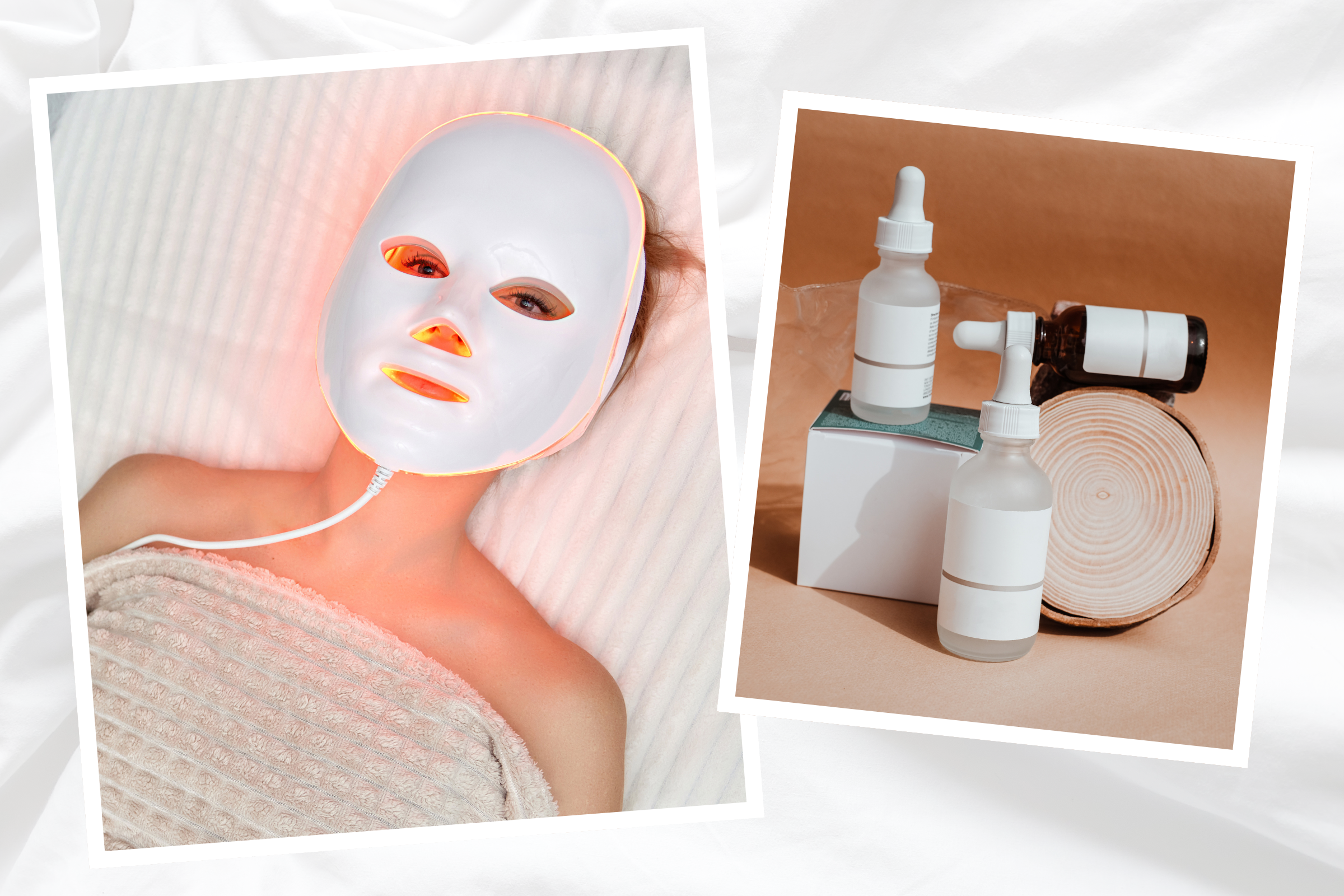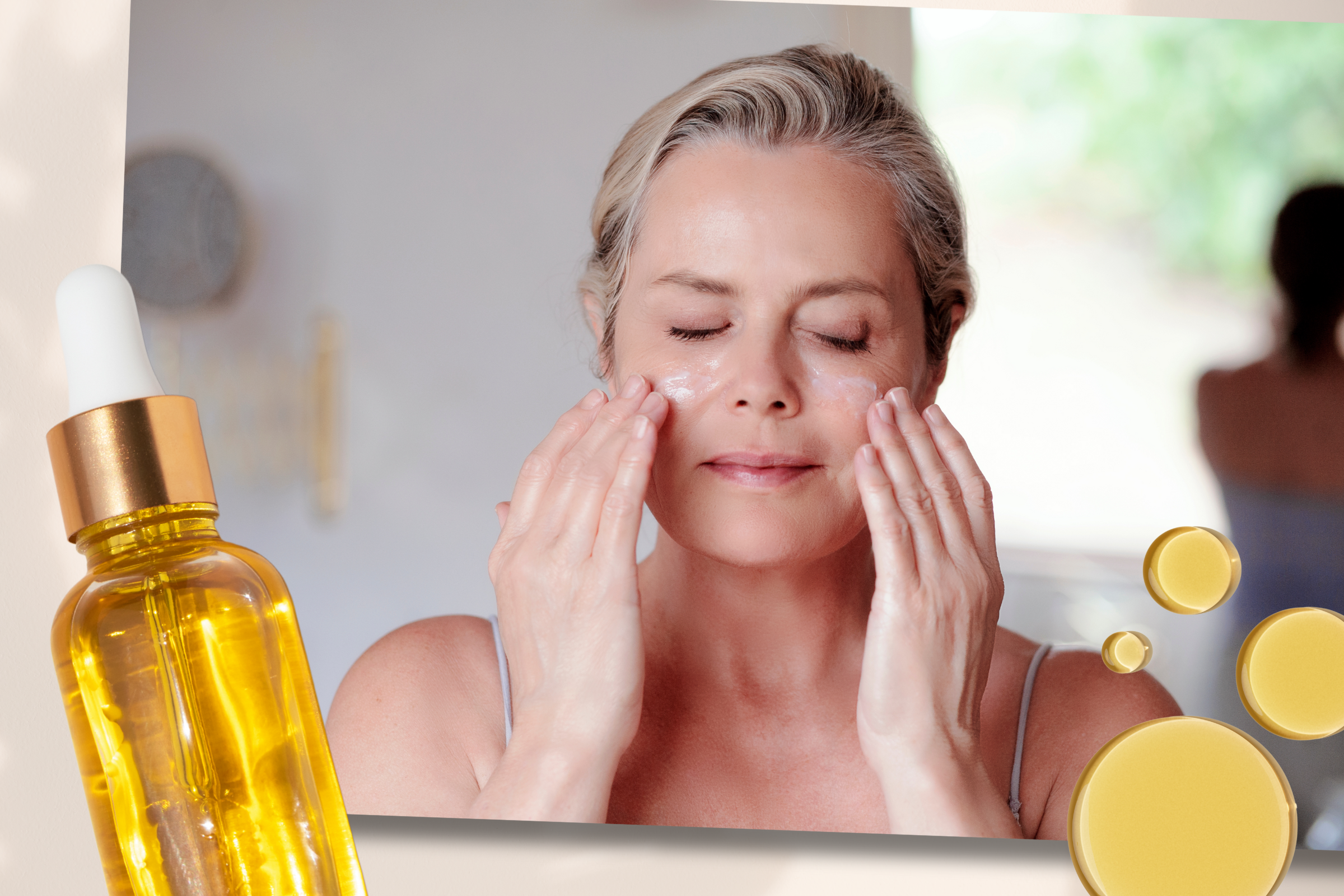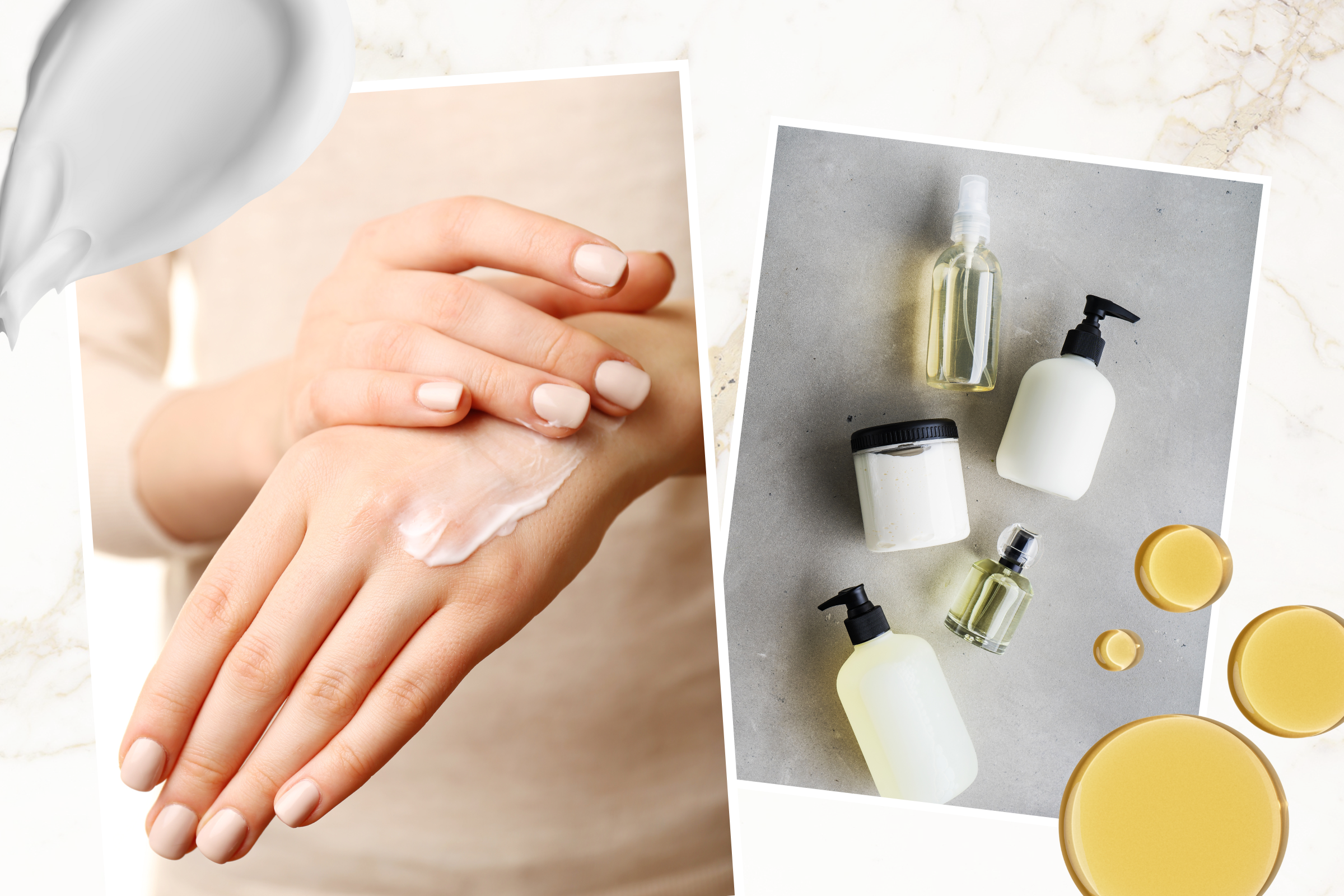6 skincare experts reveal their must-use ingredients for menopausal skin
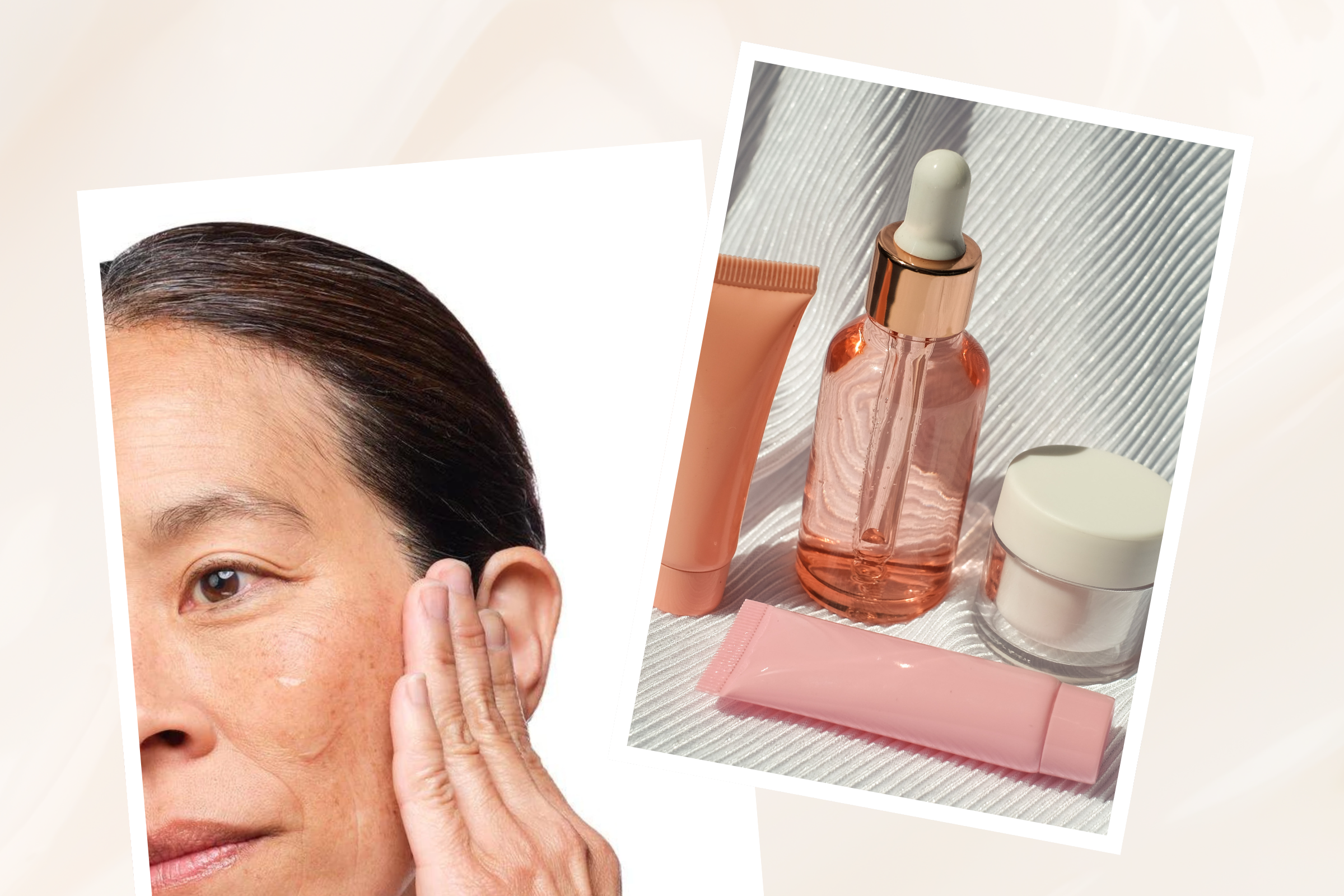
When we think of menopausal changes, our minds often go straight to hot flushes and weight gain. But, our skin can be significantly impacted too. The good news is that the right skincare ingredients can make a huge difference to menopausal skin.
How menopause impacts the skin
As with other menopause symptoms, changes to the skin occur due to dramatic shifts in oestrogen levels.
“Oestrogen is an important facilitator for many processes within the body, and the lack of it due to menopause can result in numerous well-known effects,” reveals Dr Stephen Humble, founder of Dr Humble Clinical Skincare and Medical Director of Hedox Clinic Harley Street. In terms of skin, these include “reduced collagen, elastin, antioxidants, and fibroblast (skin cell) function.”
As a result, Stephen reveals we might notice the following:
- Dryness
- Thinning
- Fine lines and wrinkles
- Loss of skin barrier function
- Reduced texture
- Reduced tone
- Reduced elasticity
There’s no denying that how we look impacts self-esteem. But, by using the correct skincare products, we can help to combat some of the beauty challenges that menopause can bring. Here, six skincare experts reveal their go-to ingredients for supporting and rejuvenating menopausal skin.
Please note, these ingredients are not intended to be used all at the same time. Some products may interact with one another and cause a negative reaction. Read our guide here about the best skincare products to use together. And, find advice for skincare cycling here.
6 skincare experts reveal their must-use ingredients for menopausal skin
Retinoids
Retinoids – a derivative of vitamin A – are a favourite of Dr. Karishma Hemmady, consultant dermatologist at Stratum Clinics. This ingredient, found in the form of retinol in over-the-counter skincare, is key in “promoting cell turnover, stimulating collagen production, and helping improve skin texture and tone,” she reveals.
Due to its influence on collagen, retinoids are particularly beneficial for reducing fine lines and wrinkles and keeping skin looking plump.
“Results can typically be seen within a few weeks to a few months of consistent use,” says Karishma. If you want to enhance its effects, she recommends pairing retinol with niacinamide and hyaluronic acid. “They can complement the effects of retinoids by providing additional hydration and supporting the skin’s barrier function,” she states.
Only use retinoids at night and always follow with an SPF in the morning, as they can make skin more sensitive to sun damage.
Product we love: Living M Super A Retinol Sleep Cream, £45 (save 21% with the code LIZLOVES)
Hyaluronic acid
By the time we reach midlife, our skin’s natural hyaluronic acid reserves have halved – so obtaining this moisturising ingredient from products is a must.
As Dr. Ifeoma Ejikeme, Medical Consultant, Skin Expert, and Founder of the award-winning Adonia Medical Clinic, explains, hyaluronic acid is a menopausal essential.
“It helps to hydrate the skin, plumping it up and reducing the appearance of fine lines and wrinkles,” she says. “It also helps improve the skin’s elasticity and overall texture.”
Dr. Ejikeme says results are visible within a few weeks of consistent use, and its moisturising powers can be enhanced when combined with ceramides or glycerin. “However, caution should be taken when combining hyaluronic acid with highly acidic ingredients, as they may counteract its benefits,” she notes.
Product we love: SKINICIAN Hyaluronic Elixir, £38 (save 15% with the code LIZLOVES)
Vitamin C
Not just for boosting immunity, vitamin C can have a potent effect on the skin’s appearance. Thanks to powerful antioxidant properties, it “helps protect the skin, guarding against irritation and inflammation,” reveals Dr. Lubna Khan-Salim, founder of Time To Bloom, a skin, health, and longevity clinic.
“It can also help to boost collagen production. Plus, it also works to reduce inflammation and redness, reduce pigmentation, and brighten the skin.”
Although vitamin C can work wonders, don’t expect overnight results. “It will be a couple of months before you start to notice skin looking brighter and hyperpigmentation fading,” says Lubna.
Get more out of vitamin C by adding a vitamin E product to your skincare routine, too. “Using vitamin E alongside vitamin C is believed to help fight free radicals,” adds Lubna.
Product we love: By Sarah Vitamin C+E Booster, £24 (save 20% with the code LIZLOVES)
Glycerin
“This ingredient has some incredible benefits for menopausal skin,” asserts Dr. Ross Perry, Medical Director of Cosmedics Skin Clinics. “It allows the skin to retain moisture, which can help stimulate the production of collagen. It can also help tighten the skin, strengthen it, and soften and smooth the overall texture.”
While it takes about six weeks for a product to take full effect within the skin, you should notice a difference after around two weeks of use.
As Ross explains, we need to avoid using harsh toners alongside glycerine, as they can counteract its hydrating effects.
“Products containing alcohol, i.e., toners which have a drying effect on the skin, should be avoided on skin already struggling to hold onto moisture during the menopause,” he says.
Product we love: La Roche Posay Toleriane Sensitive Cream Moisturiser, £21
Peptides
While maybe not as well known as other ingredients, peptides are essential for menopausal skin, says Dr Anjali Mahto, Consultant Dermatologist at Self London.
“Peptides are amino acid chains that signal skin cells to produce more collagen, aiding in skin repair and renewal,” she states. “This ingredient can help address menopause-related concerns by promoting collagen production.”
The result? Improved skin elasticity and firmness, leading to fewer fine lines and wrinkles.
Anjali notes it takes between four and eight weeks for peptides’ results to show. “Consistency really is key here,” she says.
To support peptides’ efforts, Anjali recommends also using ingredients such as ceramides or niacinamide. “These can enhance skin barrier function and overall hydration,” she explains.
Product we love: The Ordinary Multi-Peptide + HA Serum, £15.99
SPF
While SPF is important at all ages, Dr. Stephen Humble says that continued application during the menopause years is vital.
“The biggest cause of premature skin ageing is sun exposure,” he reveals. “SPF is preventative for ageing.”
Research suggests lower oestrogen levels during menopause can put skin at greater risk of oxidative damage, which can be caused by sun exposure.
While cloudy skies may not look like they warrant sunscreen, UV rays can still impact the skin on the winteriest of days. “Use a light, non-greasy SPF 15 in winter and SPF 30-50 in summer,” Stephen recommends.
Product we love: By Sarah Serene Daily SPF 50, £27 (save 20% with the code LIZLOVES)
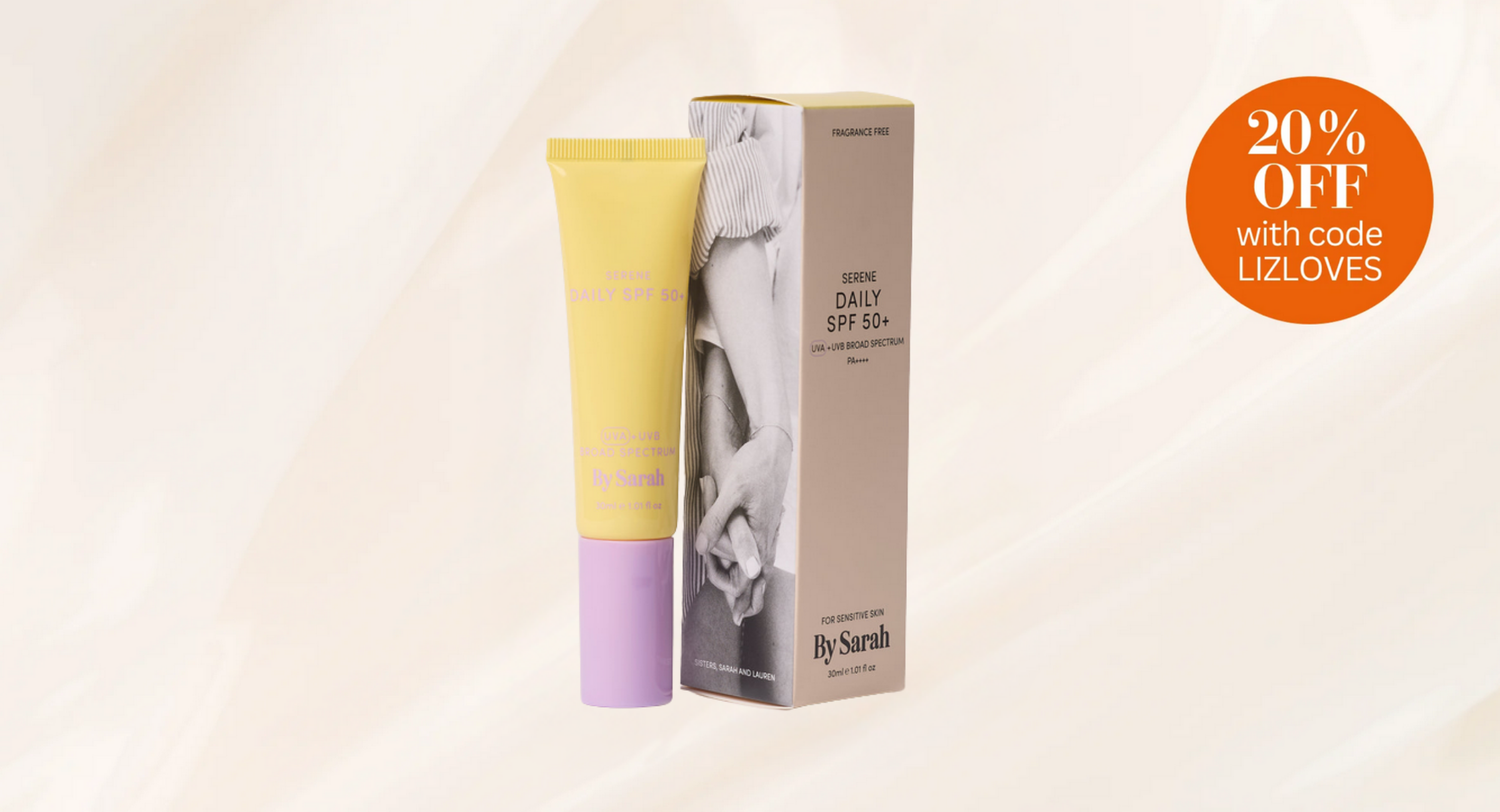
Read more beauty features
- Why glycerin is perfect for mature skin – and 6 products to try
- I’m a skincare specialist – these are my top tips for managing rosacea
- 12 hydrating serums to seriously upgrade your midlife skincare routine
Please note, on some occasions, we earn revenue if you click the links and buy the products, but we never allow this to bias our coverage and always honestly review. For more information please read our Affiliate Policy.







